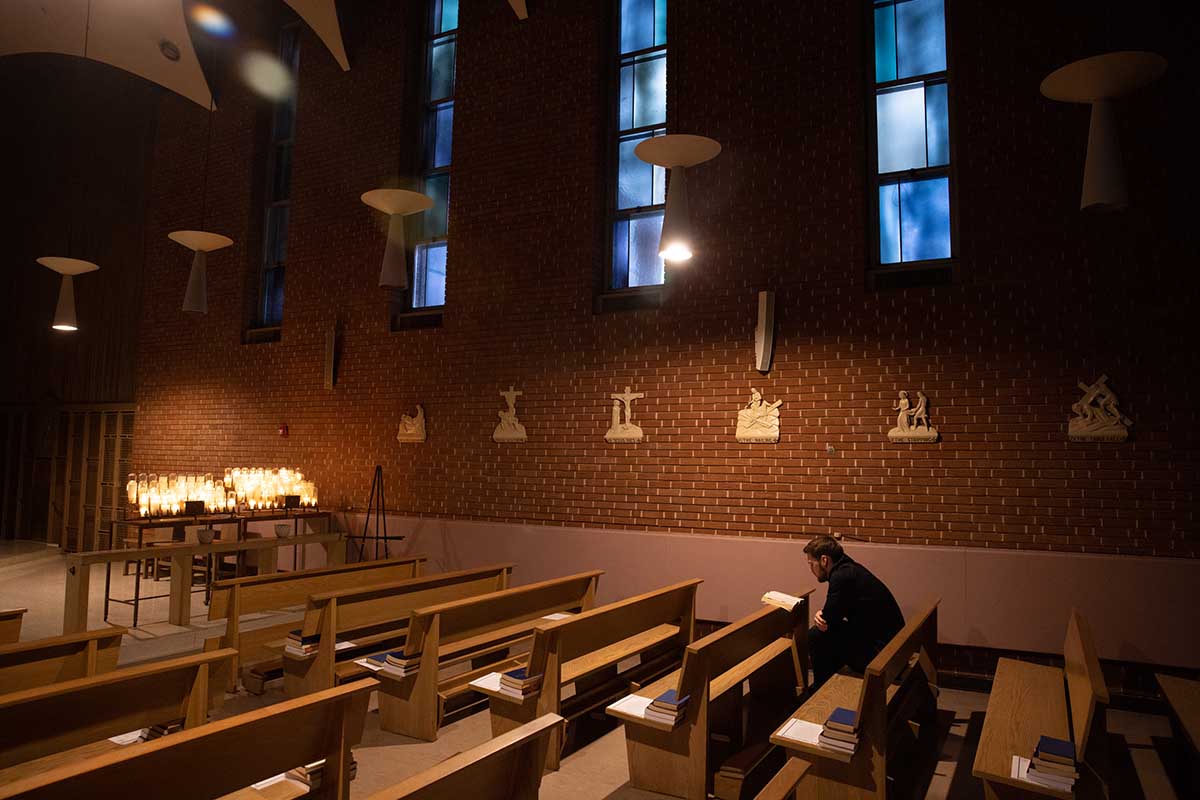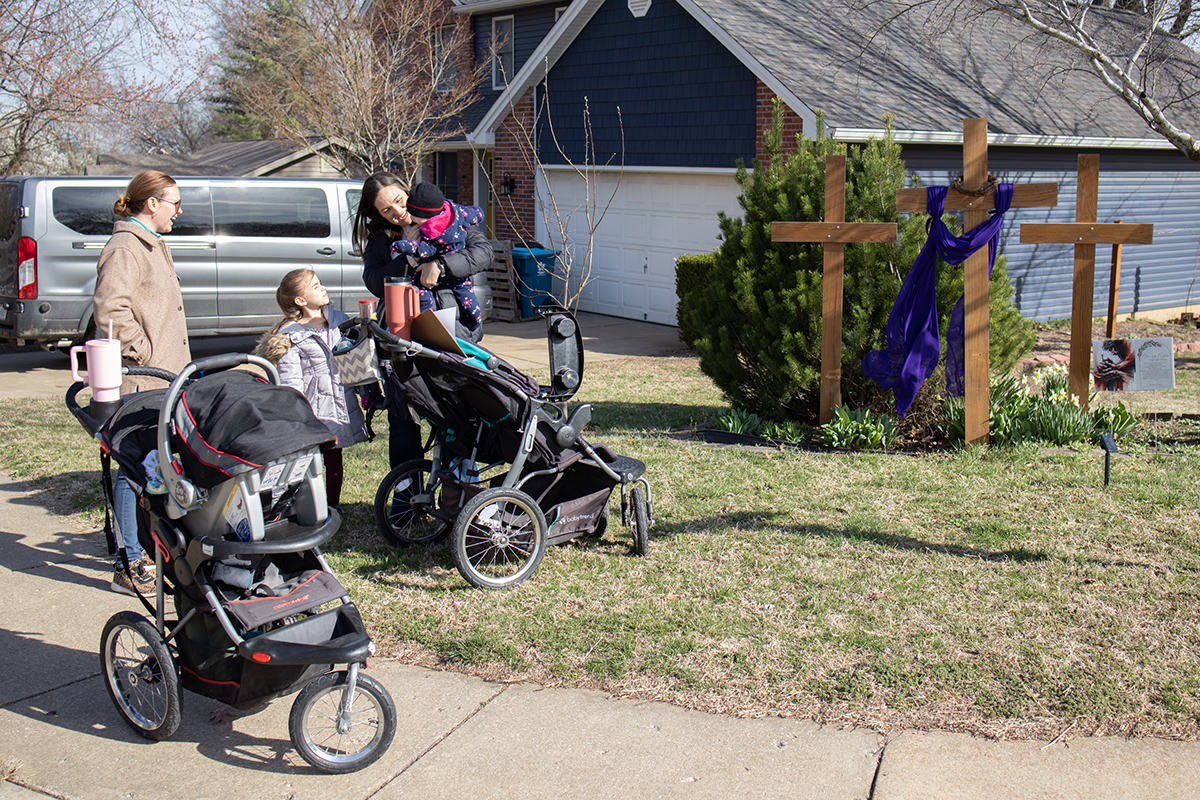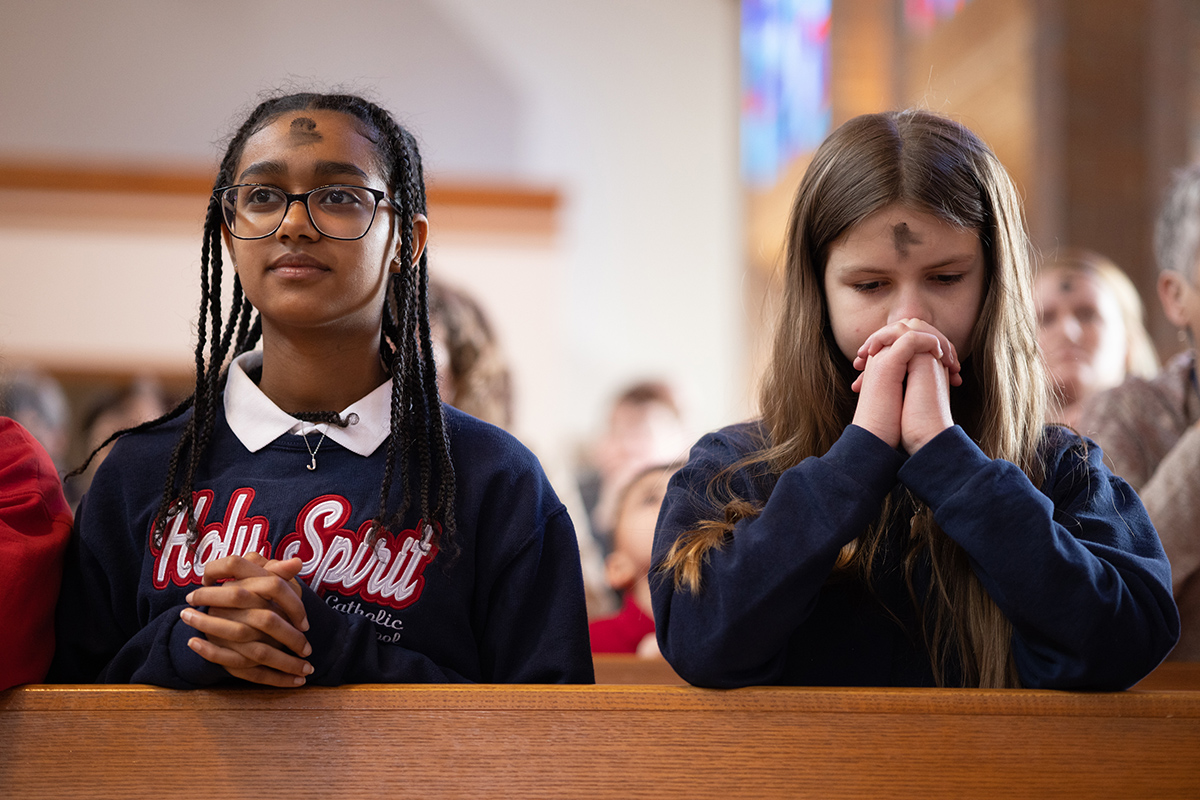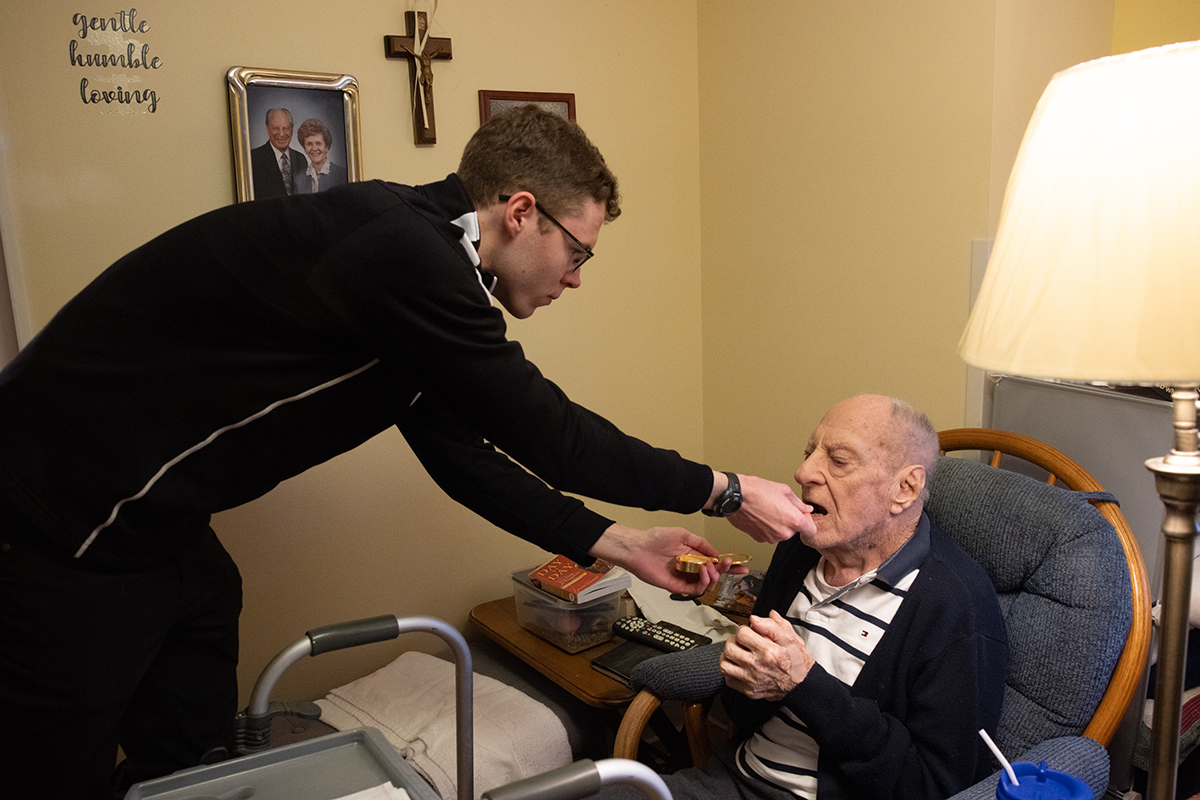Catholic WWII veterans recall serving in the Pacific
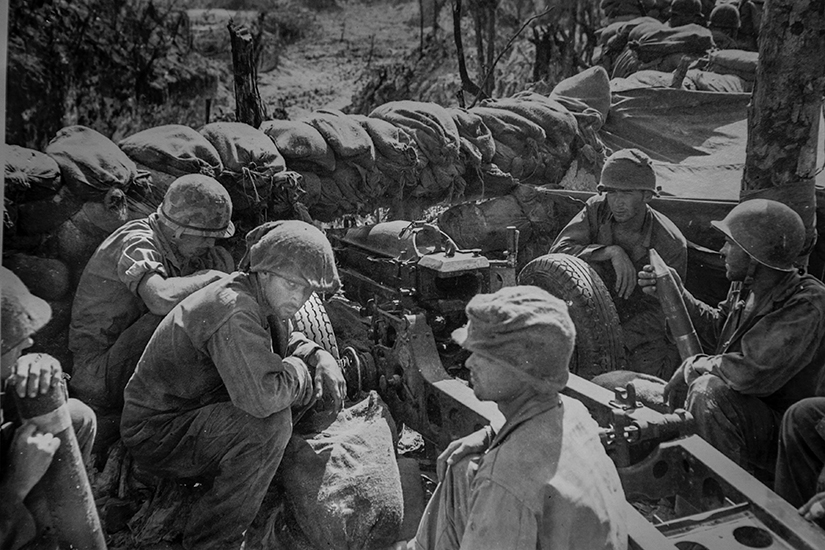
With the 75th anniversary of the end of World War II, Catholic veterans recall serving in the Pacific
September 2, 1945, was a relief for Clarence Tunnicliff, who served in the U.S. Navy on the USS Gilmore, a destroyer escort, in the Pacific during World War II. It was a feeling shared by two other Catholic men who served in the Pacific during the war, Army veteran Burt Biby and Navy veteran George Nisbet. All three men live at Our Lady of Life Apartments in Shrewsbury.
That September day, more than four years after the war began, formal surrender documents were signed aboard the USS Missouri, designating it as the official Victory over Japan Day (V-J Day) in the United States. Other countries mark V-J Day as Aug. 15, the date Japan announced it’s intention to surrender. World War II in Europe had ended on May 8 that year with news of Germany’s surrender and the day declared Victory in Europe (V-E Day).
More than 400,000 Americans gave their lives during World War II to secure the nation’s freedom.
Setting sail
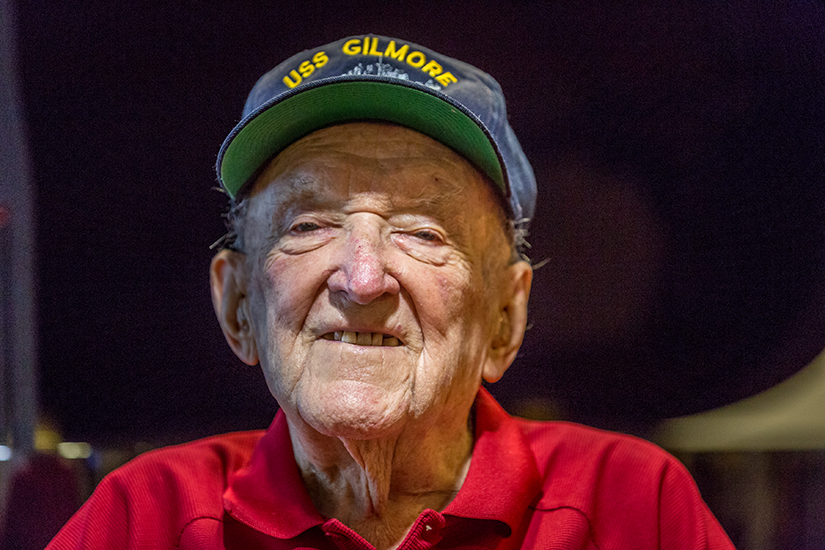
Clarence Tunnicliff’s ship sailed along the Aleutian Islands, a chain of 14 volcanic islands and 55 smaller islands near Alaska that separate the Bering Sea from the Pacific Ocean. U.S.-Canadian forces fought for several months to counter the Japanese. The USS Gilmore performed troop transport and escort duties and made contact with Japanese submarine I-180, sinking it in the early hours of the next day.
Later, Tunnicliff’s ship went to other islands in the Pacific escorting ships. He attended Mass whenever a chaplain was present on an island.
Of his service, the 95-year-old said, “it’s something I had to do,” noting that he enlisted on Aug. 26, 1942. “I would have been there before that but my mother wouldn’t sign for me. I couldn’t go in without her signature until I turned 18.”
The war was necessary, he said.
After the war, he used his veterans benefits to attend the University of Missouri-Rolla where he received a degree in electrical engineering. One of nine children, he said he wouldn’t have afforded college otherwise. Tunnicliff worked for the electric company in St. Louis and the Tennessee Valley Authority in Milwaukee. He retired in 1984 and was a parishioner at St. Catherine Laboure Parish in Sappington.
Lots of casualties

Burt Biby served in a cannon company of the U.S. Army in the Pacific and was part of the brutal Battle of Peleliu supporting the U.S. Marine’s 1st Division. U.S. casualties on Peleliu numbered 1,544 killed in action and 6,843 wounded. The 1st Marine Regiment suffered 70 percent casualties — 1,749 men — in six days of fighting while the 7th Marine Regiment suffered 46 percent casualties. Nearly 11,000 Japanese were killed; only 301 were taken prisoner.
“It was not very pleasant,” Biby said. The Japanese were in defensive positions in caves in the hills, and the battle was much more difficult than anticipated. “They were not easy to deal with” and refused to surrender, he added.
He prayed. “Sure I did. You prayed for yourself that you wouldn’t get shot up. You knew you were in danger.”
Biby’s unit also served on other islands in the Pacific where the Japanese had invaded. The war was necessary since the Japanese attacked Pearl Harbor, he said, and “we had a lot to fight for.”
Biby, 96, grew up in St. Engelbert Parish and attended McBride High School. He had a football scholarship to St. Benedict College. After the war, he had another semester to finish at the University of Missouri-Columbia. He received a degree in business administration and had a career in sales, retiring as an investment broker. His first wife died of cancer and he remarried before becoming widowed again. He’s enjoyed living at Our Lady of Life, an independent living apartment complex operated by Cardinal Ritter Senior Services where senior adults and couples remain active and involved while enjoying retirement.
Varied duties
George Nisbet served as a laborer in the U.S. Navy on various island bases such as one on Samar where he helped a unit constructing a dry dock for repairs of ships. Being a part of the war effort was important, he said. He was in the Pacific at the time the war ended, and he doesn’t recall a big celebration.
He became part of the inactive reserves, later called up and reactivating a base in Maryland and doing shore patrol. Bilby was discharged before the Korean War began.
He recalls kneeling in a tiny library on a ship for confession with a priest. “I haven’t gotten used to that yet,” he said with a laugh.
Nisbet, 93, could have had a deferment because he worked for the railroad, but he joined the Navy despite his boss’s protests. A longtime parishioner with his family at St. Rita in Vinita Park, he ended up working 46 years for the railroad, retiring at age 62.
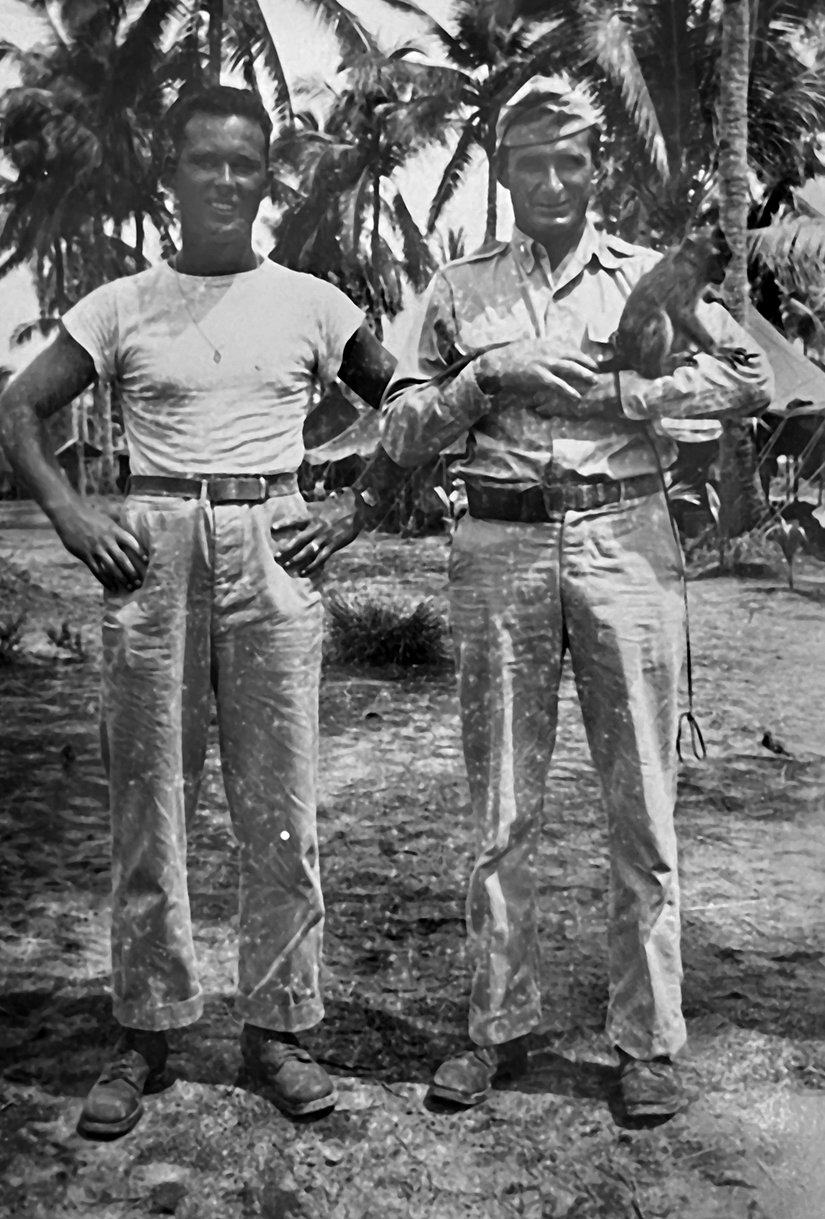
>> Peace vs. war
“Nothing is to be lost with peace; everything can be lost with war.” These were words used by Pope Pius XII on Aug. 24, 1939, on the eve of World War II, a war which was to bring devastating effects on the entire European continent for the following six years, and which gradually expanded, bringing into its clutches the entire globe.
World War II was a war which was accompanied by the horrors of the Holocaust, that terrible mark on the 20th century which should be a permanent reminder to all of the depths of depravity to which totalitarian regimes are prepared to stoop, when they remain unchallenged.
While the Church teaches that war is always something to be ardently avoided when possible, the Second Vatican Council refers to the legitimacy of just war theory and the Catechism of the Catholic Church (2307-09 and 2312-14) explicitly mentions the “just war doctrine.”
The Church recognizes that a nation has not just the right, but the obligation to ensure the security of its citizens and to respond to an aggression, even — if only under very strict conditions — by means of military force.
But the section of the Catechism which deals with the strict conditions for legitimate defense by military force is headed “Avoiding war.” The treatment of the just war doctrine is introduced by the phrase (2308): “all citizens and all governments are obliged to work for the avoidance of war.” It talks (2307) about “the evils and injustices which accompany all war”.
“Theological and Moral Perspectives on Today’s Challenge of Peace,” Archbishop Diarmuid Martin of Dublin
For more information on conscience, war and peace, visit bit.ly/31tmZsZ.
“It is my earnest hope, and indeed the hope of all mankind, that from this solemn occasion a better world shall emerge out of the blood and carnage of the past — a world founded upon faith and understanding, a world dedicated to the dignity of man and the fulfillment of his most cherished wish for freedom, tolerance, and justice.”
September 2, 1945, was a relief for Clarence Tunnicliff, who served in the U.S. Navy on the USS Gilmore, a destroyer escort, in the Pacific during World War II. It … Catholic WWII veterans recall serving in the Pacific
Subscribe to Read All St. Louis Review Stories
All readers receive 5 stories to read free per month. After that, readers will need to be logged in.
If you are currently receive the St. Louis Review at your home or office, please send your name and address (and subscriber id if you know it) to subscriptions@stlouisreview.com to get your login information.
If you are not currently a subscriber to the St. Louis Review, please contact subscriptions@stlouisreview.com for information on how to subscribe.

